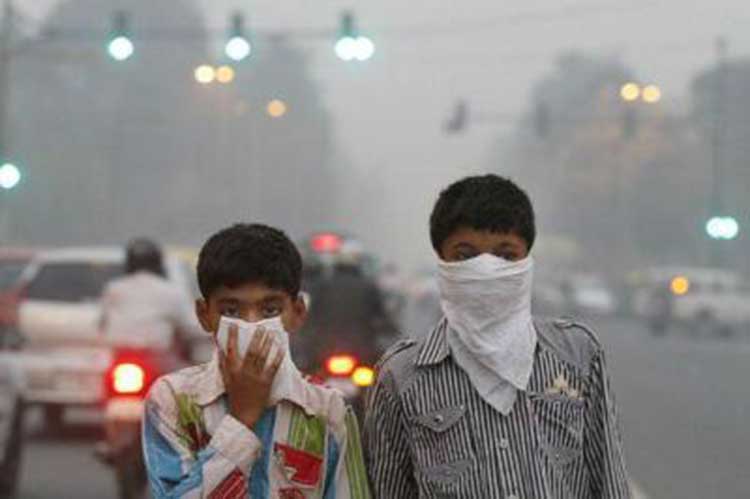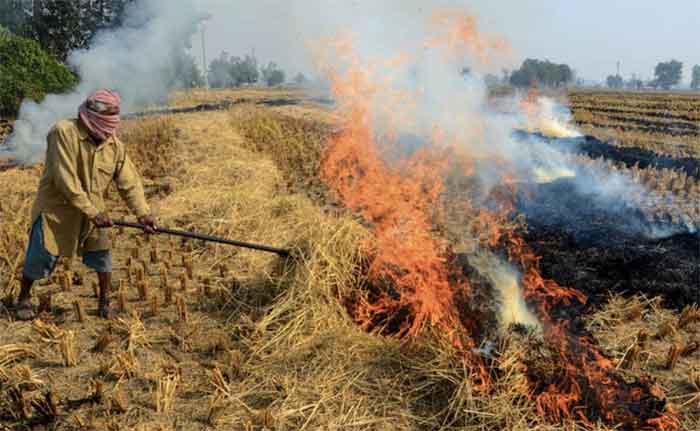
High pollution levels in Delhi have been causing very serious health concerns almost every winter in recent times, and it is the same situation this year too. Now the pollution situation is equally bad or even worse in many other cities and towns of north India particularly those in the National Capital Region. Mumbai as a coastal city with plenty of fresh breeze from the sea was once supposed to be protected from serious air pollution concerns, but this is no longer true as a number of man-made factors have contributed to serious pollution problems here too. Highly adverse health impacts of worsening pollution in many cities of India have been revealed in several studies.
In Delhi the debate on pollution has been long and intense, and a mass of data has been generated and quoted frequently, trying to make some sense out of the reality that while so much has been done in the context of a problem that has received a lot of attention, the situation has not improved and may have deteriorated in some contexts.
Nevertheless it appears that there are some important dimensions that are missing in this debate.
Memory goes back to several decades when in the name of curbing pollution a very large number of industries were shifted from Delhi causing large-scale unemployment. Now it is common almost every year to place curbs on construction work. However hardly anyone asks how workers are affected by all this, the unemployment and hunger they suffer, and why alternative employment should not be generated for them in work of ecological regeneration. I came across even workers with high skills of water and soil conservation work who were threatened with demolitions.
Time and again hut colonies (jhuggi jhompri) and slums are demolished in Delhi and other cities. This is avoidable and the demolitions apart from causing immense distress to poor people also result in a loss of dust and rubble. (In addition there have been many other kinds of avoidable demolitions, including big ones). Even the houses of folk artists with much valued skills that can contribute a lot to a more colorful culture in the big city were demolished, and when they came to meet me years later they complained bitterly that the promises made to them of alternative housing had not been kept.
As I have kept in touch with many working class people who were shifted or had to shift on their own many miles away to the outskirts of the city, I am aware that in the years since then they have been coming back almost on daily basis to the inner parts of the city where they can get employment, using vehicles which cause pollution directly or indirectly, whereby earlier they could merely walk to their employment. Thus what happened (demolitions) distressed people, caused pollution then and has been causing pollution ever since then. Meanwhile the para-urban areas were widely neglected and became dirtier and more polluted even as larger numbers of people were brought here without providing or increasing the necessary facilities to the extent that was needed.
Thus in various ways the question of pollution has been delinked from the questions of justice and from working class issues. No one suffers worse effects of pollution than workers engaged in several kinds of hazardous and polluting work, but their problems are seldom discussed in various analysis of pollution. As for the burning of stubble and other effects of ‘modernized’ farming, these are related to the spread of green revolution which was promoted jointly by the government and agribusiness interests and has created many more serious forms of pollution as well. This is seldom examined in a holistic sense.
Government policies have been highly supportive towards the rapid growth of the private car industry and the infrastructure needed for this. The rapid growth of several polluting and hazardous industries has also not been checked, and even if these are located a bit away from the main city centers smoke and pollutants can travel rather easily in the sky ignoring the traffic jams below.
The overall development pattern is highly skewed towards more and more people flocking to the biggest cities, some attracted by their wealth, some driven away by the poverty of their villages.
In the overall development of big cities, there is many-sided corruption on the one side, leading also to many avoidable big construction projects, and a catering to populist urges due to which the biggest priority social tasks of proper waste management, water conservation and greening of cities do not get the necessary support. While para urban areas can become very big centers for afforestation and agro-ecology, contributing to ecological and food security, these have been allowed to become areas of filth and squalor as well as social decay. While people here languish in unemployment, high priority tasks of afforestation in para urban areas are ignored. When demolitions were being threatened in some such areas, this writer suggested why not to involve people in greening the surrounding hilly areas instead of evicting them, but such suggestions are often ignored.
Hence the most important issue of involving the working class people in the protection and regeneration of the environment of cities has been neglected and instead the working class people have been further marginalized and impoverished in the name of ( distorted versions of) protecting environment. There has been no real and well thought-out effort to integrate the concerns of environment protection with the concerns of justice in urban planning. This is the missing dimension, the real reason why efforts to prevent pollution and to protect environment of cities have not succeeded. The current paradigm in which these questions are examined is a very arrow one, capable of providing at best narrow and short-term gains.
Bharat Dogra is Honorary Convener, Campaign to Save Earth Now. His recent books include Protecting Earth for Children, Planet in Peril and A Day in 2071.










































